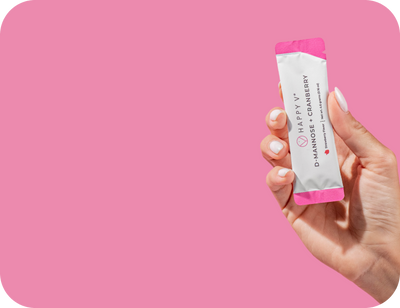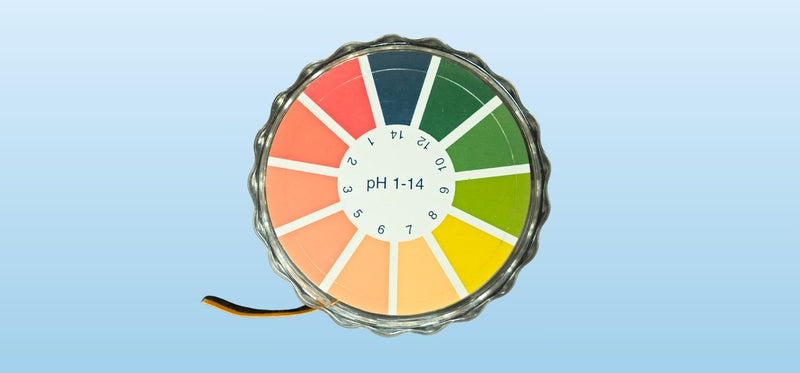- Fact Checked
- November 25, 2025
- 9 min read
How to Take Care of Your Vagina: 10 Essential Tips
Table of Contents
Table of Contents
It seems like every week the internet comes up with questionable new ways to care for your vagina. We’ve seen everything from soaking tampons in probiotics to crushing up garlic and inserting it where it definitely shouldn’t be. While influencers promise these will keep our “delicate flowers” healthy, there is little evidence they actually work, and oftentimes, they can even cause harm. So let’s cut through the noise and dig into evidence-based practices to keep your vagina odor, itch, and infection-free.
This post is for informational purposes only and does not constitute medical advice. See full disclaimer below.
Understanding Your Anatomy
Before we dig into everyday ways to keep your vagina healthy, lets go over some basic anatomy. Because believe it or not, many people with a vagina don’t actually know where their vagina is.
Though we often refer to all of the female anatomy as they vagina, the vagina is the internal canal that connects the vulva to the cervix and uterus. The external part you can see (think: the labia, clitoria, and vaginal opening) is actually the vulva. Knowing the difference is important, especially as we get deeper into this discussion, as both have different care recommendations.
10 Things You Can Do to Keep Your Vagina Healthy
While your vagina is a complex and often delicate ecosystem, the good news is that keeping it healthy and infection-free is simple and inexpensive. For many women, it is all about daily habits.
1. Let Your Vagina Breathe
So your vagina can’t actually breathe, but it should be kept as dry as possible to prevent bacteria build-up1.
The best way to do this is to avoid underwear made from silk, satin, polyester, or nylon in favor of breathable cotton underwear.
Synthetic materials like nylon lock moisture inside, keeping the area damp. This dark, moist environment provides optimal conditions for harmful bacteria to flourish, leading to bacterial vaginosis, yeast infections, and pelvic inflammatory disease (PID)2. Studies show these infections are more common in women who prefer fancier, synthetic underwear materials.
Cotton, on the other hand, is light, breathable, and absorbs moisture effectively, helping maintain a healthy pH balance.
Also avoid tight pants, leggings, and thongs can trap moisture and heat, creating conditions for bacterial overgrowth. Opt for looser-fitting clothing when possible, especially during exercise. And when you are done working out, don’t run errands in those damp clothes. Clean off, change into fresh cotton underwear, and then go own the day.
2. Clean Your Sex Toys
If you enjoy using toys during intimate moments, make sure you're cleaning them properly after every single use with warm water and mild, unscented soap to prevent bacterial buildup.
Also, consider the material your sex toys are made out of. Soft, rubbery sex toys made from PVC can irritate your vaginal walls and are difficult to clean thoroughly. Opt for toys made from body-safe materials like medical-grade silicone or elastomers rather than porous materials.
And while sharing is caring with most things in life, this isn’t the case with sex toys. Sharing sex toys can transmit sexually transmitted infections (STIs), even between trusted partners. Keep your toys personal to protect your vaginal health.
3. Practice Safer Sex
If you have multiple sex partners, safer sex practices are essential for maintaining good vaginal health.
Condoms are your best bet when it comes to vaginal and anal sex, though you should avoid condoms with spermicides, as these can disrupt your vaginal pH balance and increase infection risk.
After any sexual activity, be sure to urinate afterwards and wash your vulva with warm water to flush out any bad bacteria that may have been transferred.
4. Skip the Douche
Despite being marketed as a way to clean your vagina, your vagina is capable of cleaning itself naturally, making douches unnecessary. More than that, they have the potential to wash away beneficial Lactobacillus bacteria from your vagina, making you more susceptible to vaginal infections like bacterial vaginosis and vaginal yeast infections.
Also avoid feminine sprays, douches, fragrant soaps, and products with strong detergents or softeners are loaded with chemicals that disrupt vaginal pH3. If you feel the need to clean yourself, gently wash your vulva (remember, that’s the external area) with warm water or mild, unscented soap. Use your hand or a soft washcloth.
5. Stay Hydrated
General dehydration can lead to vaginal dryness4, which can then cause itching, burning, and painful sex. Along with being uncomfortable, this irritation can promote bad bacterial growth, as irritated vaginal walls are easier for bacteria to stick to.
To ensure adequate vaginal moisture, aim for 7-8 glasses of water daily. This will also ensure you are regularly flushing bacteria from your urinary tract, reducing your UTI risk.
If you experience vaginal dryness during sex (which is common with vaginal atrophy during menopause), use water-based glycerin lubricants to enhance comfort5.
6. Schedule Regular OB/GYN Appointments
If you ever experience thick or thin discharge, persistent odor, genital sores, vaginismus, or unexplained stains on your underwear, that’s your sign to call your gynecologist and schedule an appointment.
Even without symptoms, though, it’s important to maintain regular visits with your OB/GYN so they can catch issues early and screen for asymptomatic infections. Even if they don’t cause uncomfortable symptoms, lingering infections can still lead to complications down the road.
7. Reconsider Your Grooming Routine
Many women remove their pubic hair to achieve a neater, cleaner look, but pubic hair has an important role!
Like nasal hair prevents foreign particles from entering your nose, pubic hair works as a barrier, trapping bacteria and dirt before they can enter your vagina. A completely bare pubic area is more susceptible to infections.
Pubic hair also traps pheromones that may enhance attraction and provides cushioning that reduces friction during sex.
If you want to trim your pubic hair, use scissors as opposed to shaving, waxing, laser removal, or electrolysis to reduce your risk of razor burn, ingrown hairs, and irritation while maintaining some protective barrier.
8. Strengthen Your Pelvic Floor
Just like your body needs exercise to stay in shape, so does your vagina. While squats and planks are great for core strength, your vagina needs targeted exercises.
Kegels strengthen your pelvic floor muscles, supporting your bladder, uterus, small intestine, and rectum. Strong pelvic muscles improve bladder control, enhance sexual sensation, and support overall pelvic health.
The best part? Unlike regular exercise, you don’t need to carve out any time at all to exercise your pelvic floor. First, identify your pelvic floor muscles by stopping urination mid-stream. That contraction is basically a Kegel. They can be done anywhere, and no one will know. Simply:
- Contract your pelvic floor muscles for 5 seconds
- Release and relax for 5 seconds
- Repeat 10-15 times per set
- Do 3 sets daily
9. Be Cautious with Antibiotics
Antibiotics are often necessary to clear an infection and in some cases, they can even be life-saving. But it’s important to use antibiotics responsibly.
While antibiotics kill infection-causing bacteria, they also kill the good, protective bacteria living in your vagina6. With fewer protective bacteria, you can be at risk for secondary infections, like vaginal yeast infections.
This is why it’s best to use antibiotics only when necessary and when prescribed by a doctor. When you do take them, take the course exactly as directed. Do not stop taking them just because your symptoms have cleared, as this can lead to antibiotic resistance.
10. Perfect Your Wiping Technique
Believe it or not, there’s a good chance you are wiping the wrong way!
After you use the bathroom, you should always wipe from front to back, moving away from your vagina and urethra. This prevents sweeping fecal bacteria toward these sensitive areas, reducing your risk of vaginal infections and UTIs7.
While this may seem too simple to matter, a study of 200 women confirmed that behavioral factors including wiping technique, cleaning methods, and underwear hygiene could predict vaginal infection risk.
Bonus Tip: Support Your Vaginal Microbiome with Probiotics
Your vagina is home to trillions of bacteria. When it comes to good vaginal health, the bacteria of the Lactobacillus species are the real stars8. They are actually probiotics, and they help produce lactic acid, which keeps your vaginal pH slightly acidic to kill bad bacteria before they can cause infections.
Supporting your vaginal microbiome—and particularly those Lactobacillus bacteria—is one of the simplest ways to maintain long-term vaginal health.
High-quality vaginal probiotics can:
- Replenish Lactobacillus levels after antibiotics, sex, menstruation, or illness9
- Support a healthy vaginal pH (around 3.8–4.5)10
- Reduce the risk of recurrent BV and yeast infections11
- Help maintain a balanced microbiome between OBGYN visits
The trick is to find a probiotic that is formulated specifically for vaginal health and includes clinically studied strains like:
- Lactobacillus acidophilus LA-14®12
-
Lactobacillus rhamnosus HN001™
-
Lactobacillus reuteri HR7™
- Lactobacillus crispatus CCFM1110™
-
Lactobacillus gasseri HLG13™
Happy V’s best-selling Prebiotic + Probiotic contains all these clinically studied strains at their clinically effective doses—no sketchy proprietary blends here! And preclinical data of Happy V’s unique blend shows promising activity against two of the most common troublemakers in vaginal health: Candida albicans and Gardnerella vaginalis.
In laboratory (in-vitro) studies, the Lactobacillus strains used in Happy V’s formula demonstrated:
- Inhibition of Candida albicans, the yeast responsible for the majority of vaginal yeast infections.
- Competitive suppression of Gardnerella vaginalis, the primary bacteria associated with bacterial vaginosis (BV).
While these results are preclinical (meaning they were conducted in controlled lab environments rather than in humans), they align with what we already know from decades of microbiome research: When Lactobacillus levels stay high, BV and yeast infections have a much harder time coming back.
Final Thoughts
Vaginal health doesn't have to be complicated or expensive. The key is understanding that your vagina thrives with gentle care and smart lifestyle choices. From the fabrics you wear to the way you clean yourself, small daily decisions add up to make a big difference in your overall vaginal health.
Remember these core principles: Less is more when it comes to products and internal cleaning. Cotton over synthetics for everyday underwear. Hydration and hygiene are your best defense against infection. And professional guidance beats internet trends every time.
Keep the Conversation Going
- Visit our blog for more women's health tips.
- Join our private Happy V Facebook group to hear from others who've been there.
- Explore supplements designed to support your vaginal health journey.
Disclaimer: This blog is for informational and educational purposes only and is not intended to diagnose, treat, cure, or prevent any disease. Statements about supplements have not been evaluated by the Food and Drug Administration. For more information about vaginal infections, visit the CDC or speak to a licensed healthcare provider.














